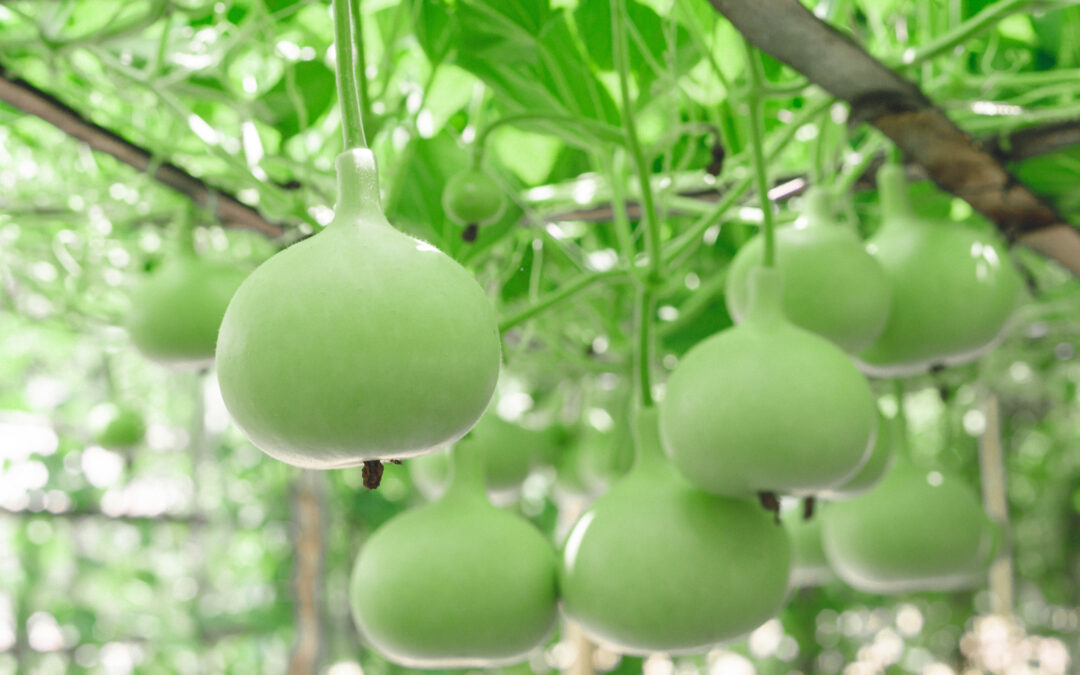

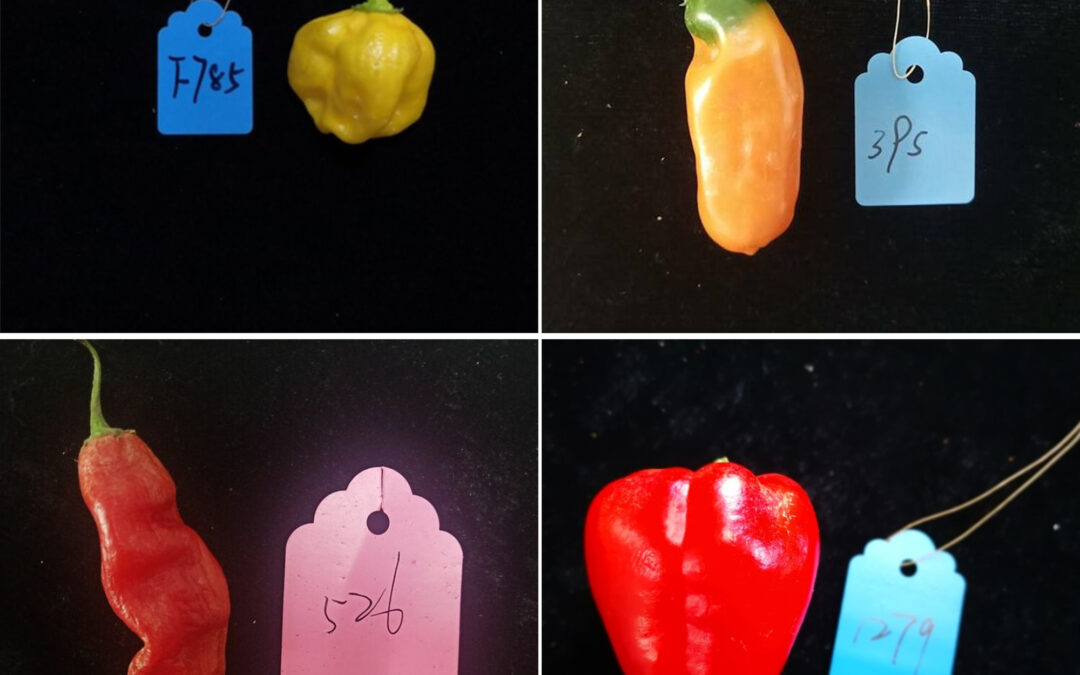
Unlocking the Genetic Code of Peppers: New Study Reveals Insights into Domestication and Diversity
Peppers are a versatile, flavorful, and widely popular crop, used not only as a healthy food source but also for their medicinal properties. In a pioneering study recently published in Nature Communications, an international team of researchers, including scientists...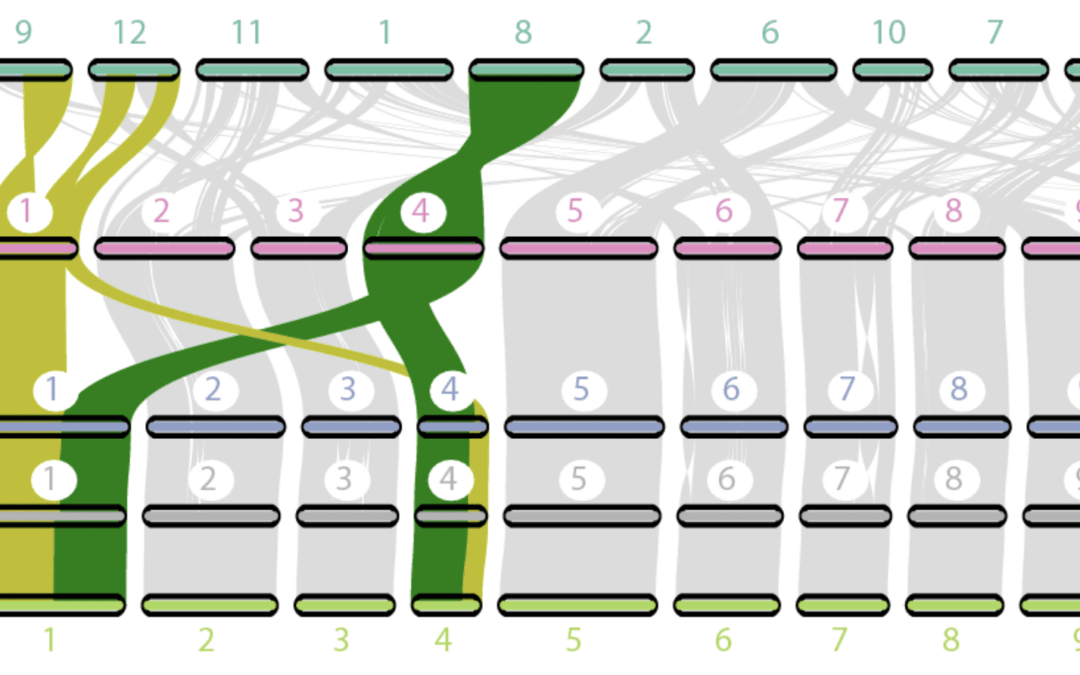
Behind the Rind: New Genomic Insights into Watermelon Evolution, Quality, and Resilience
Watermelon is a globally significant agricultural product, both in terms of the total amount produced and the total economic value generated.Scientists at the Boyce Thompson Institute have constructed a comprehensive “super-pangenome” for watermelon and...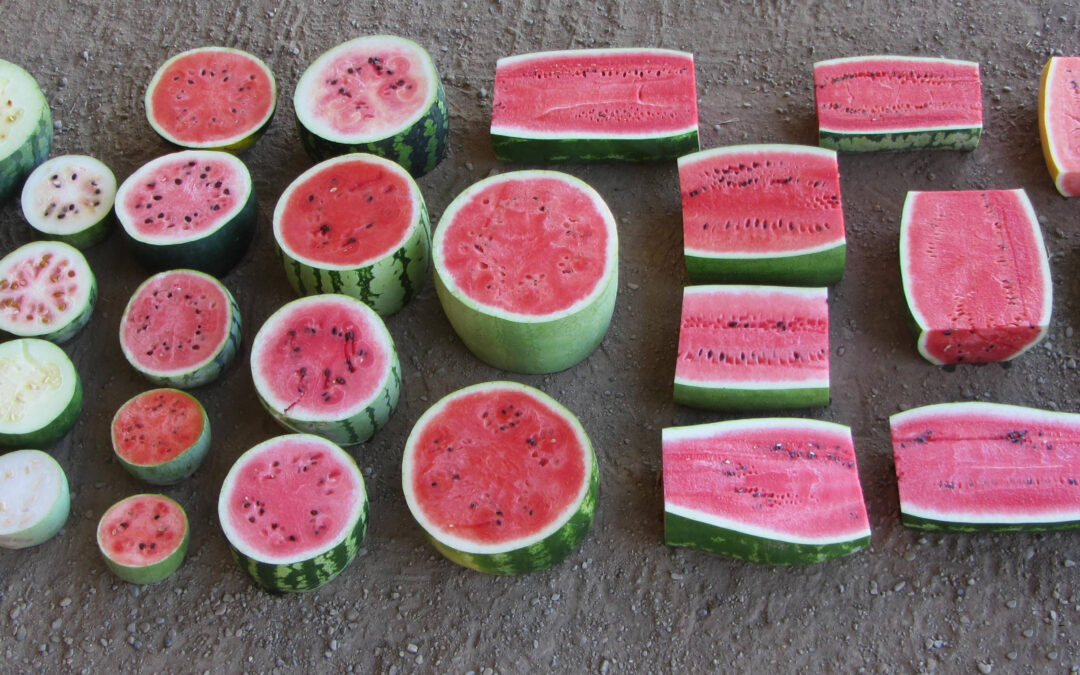
Watermelon Wonders: The Surprising Science Behind Your Favorite Summer Fruit
You probably wouldn’t be surprised to learn that watermelon is the second largest fruit crop in the world (if you don’t count tomatoes as a fruit), just barely behind bananas. However, you may be surprised by a few of these lesser-known watermelon facts:...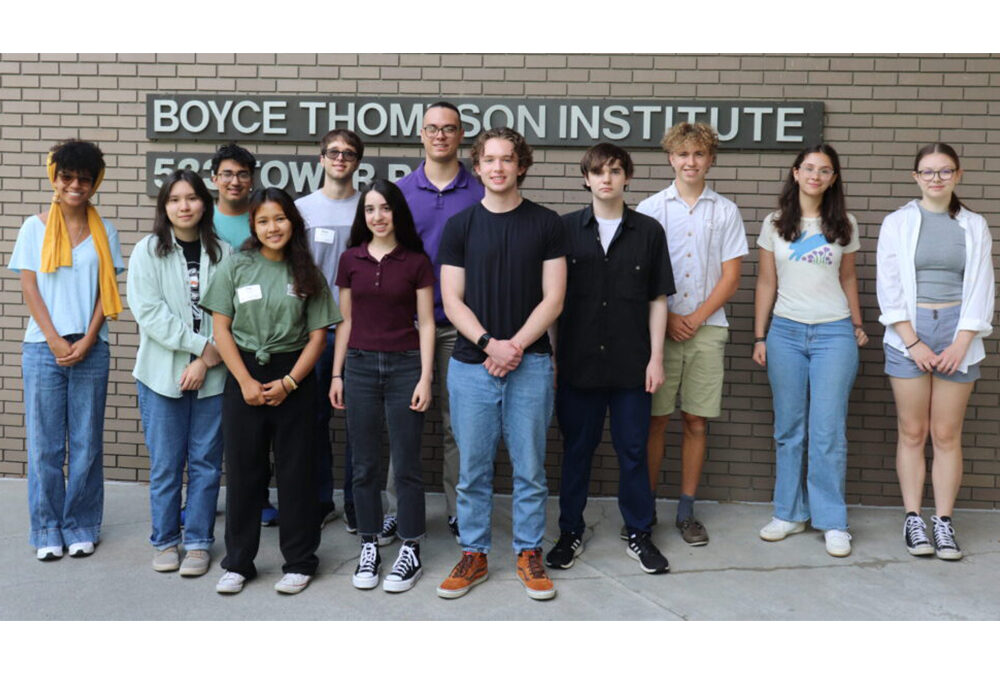
BTI Welcomes 2023 High School Research Experience & Workforce Advantage Students
On June 27, Boyce Thompson Institute welcomed ten high school students to our High School Research Experience and two high school students to our Workforce Advantage Program. The High School Research Experience focuses on training and inspiring the next generation of...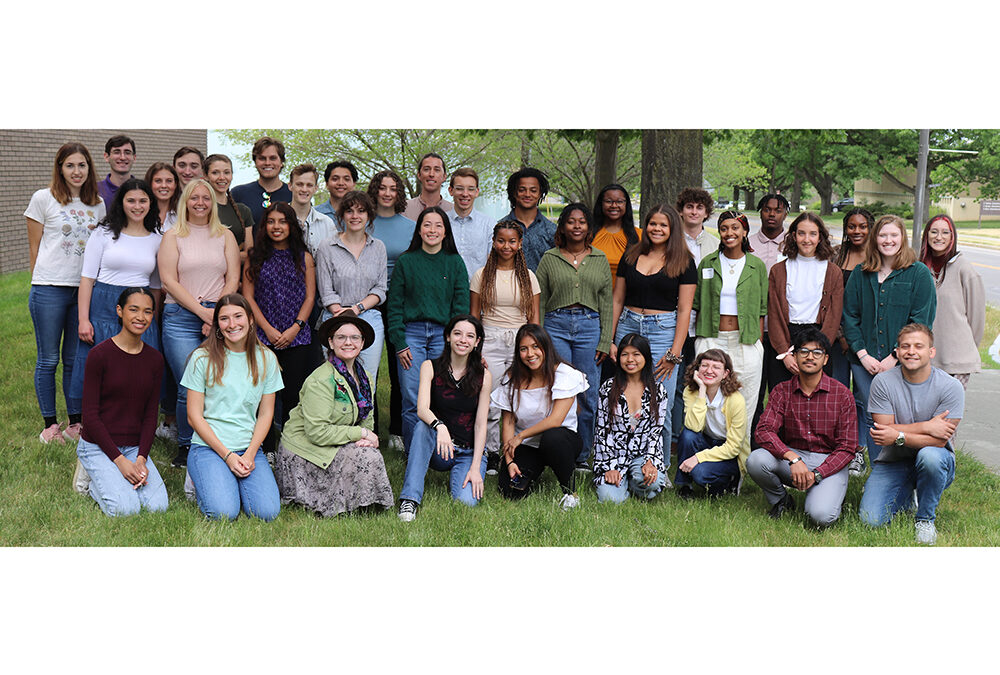
BTI Welcomes 2023 Undergraduate Student Researchers
On June 5, Boyce Thompson Institute welcomed 39 undergraduate students from colleges across the country to experience the life of a researcher for 10 weeks. Now in its 23rd year, BTI’s NSF funded Plant Genome Research Program (PGRP) and USDA funded Innovations in...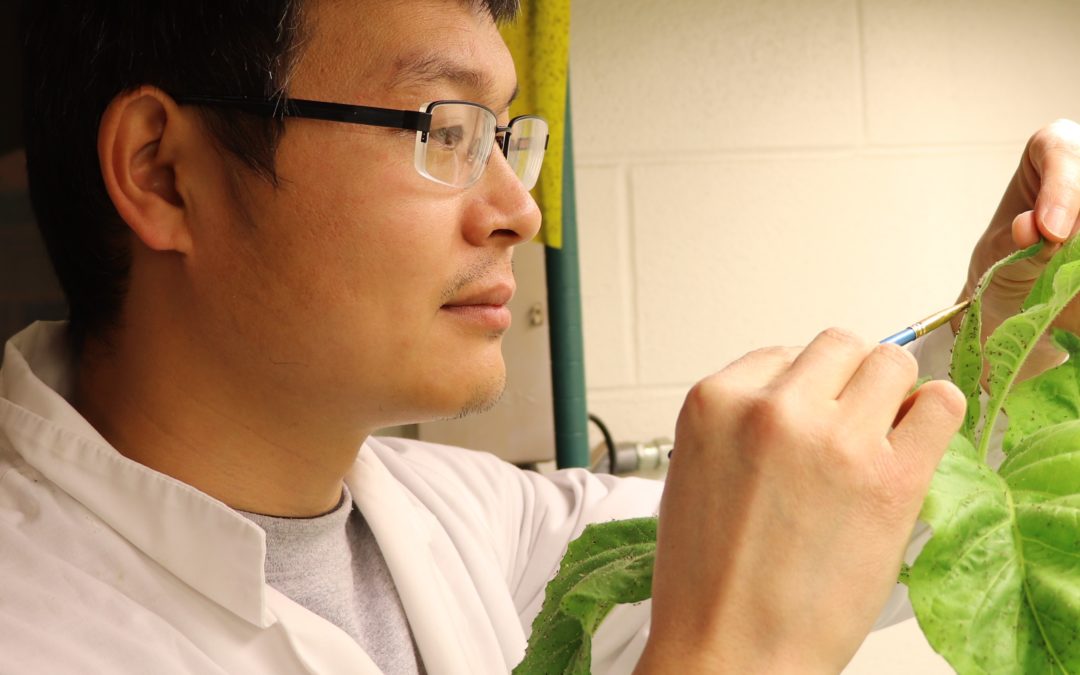
Controlling insect pests by targeting genes acquired from other species
Killing crop-damaging insects by targeting genes essential to their survival is a promising approach to pest control. Because essential genes are often conserved across multiple insect species, the challenge is finding targets whose silencing kills the pests but not...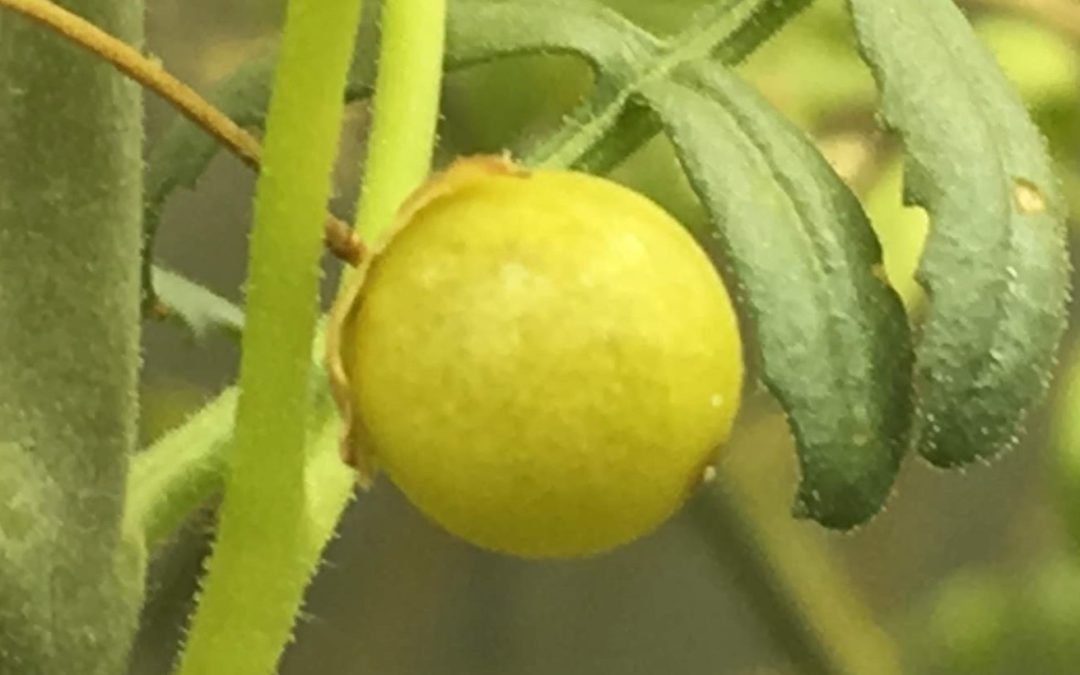
Wild tomato genome will benefit domesticated cousins
Wild relatives of crops are becoming increasingly valuable to plant researchers and breeders. During the process of domestication, crops tend to lose many genes, but wild relatives often retain genes that could be useful – such as genes that confer resistance to...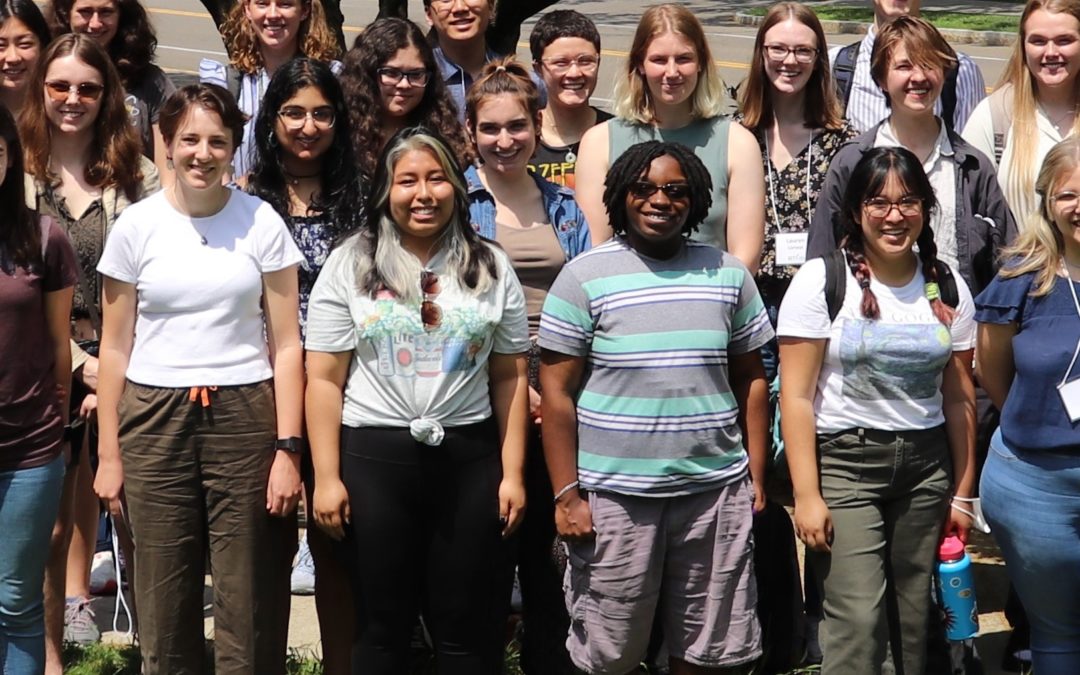
BTI Welcomes Summer Student Interns
On May 31, Boyce Thompson Institute welcomed 41 of the country’s brightest undergraduate students from universities around the country to experience the life of a researcher for 10 weeks. Ten more research interns from local area high schools will join the Institute...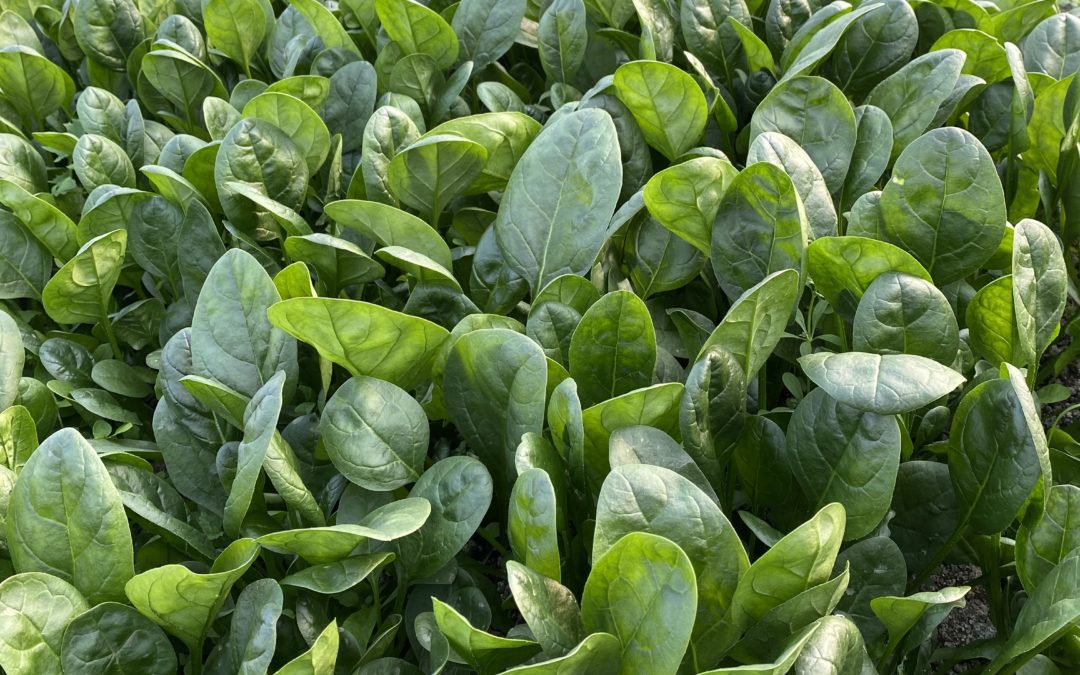
Genetic discoveries could improve spinach’s disease resistance and palatability
Most of us are familiar with “spinach teeth,” the harmless but gritty-chalky mouthfeel caused by the vegetable. A team of researchers from Boyce Thompson Institute (BTI) and six Chinese universities has identified genes in spinach that regulate its concentration of...
Gene discovery may help peaches tolerate climate stress
A BTI-led team has identified genes enabling peaches and their wild relatives to tolerate stressful conditions – findings that could help the domesticated peach adapt to climate change. The study, co-led by Boyce Thompson Institute faculty member Zhangjun Fei,...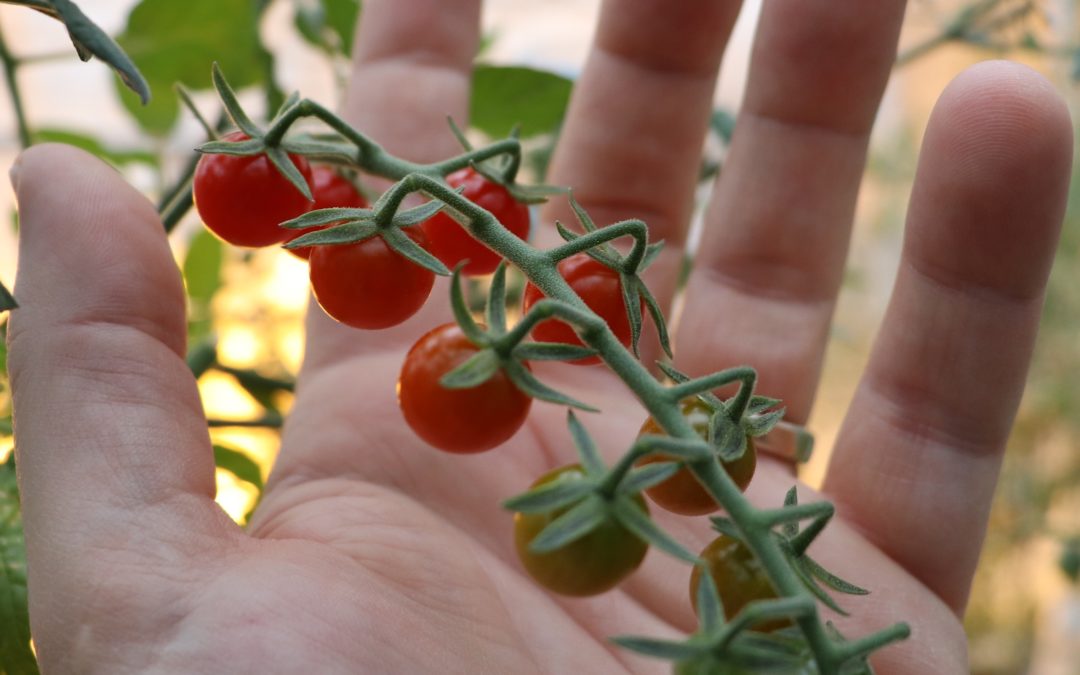
Tomato’s Wild Ancestor Is a Genomic Reservoir for Plant Breeders
Thousands of years ago, people in the region now known as South America began domesticating Solanum pimpinellifolium, a weedy plant with small, intensely flavored fruit. Over time, the plant evolved into S. lycopersicum – the modern cultivated tomato. Although today’s...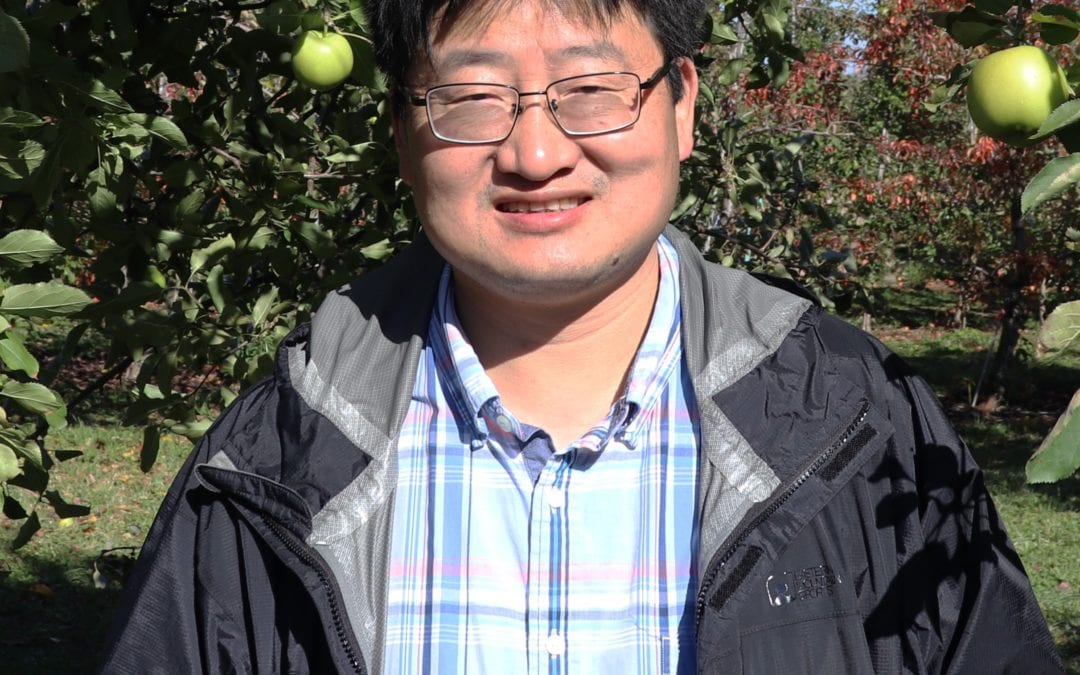
Silk Road Contains Genomic Resources for Improving Apples
The fabled Silk Road – the 4,000-mile stretch between China and Western Europe where trade flourished from the second century B.C. to the 14th century A.D. – is responsible for one of our favorite and most valuable fruits: the domesticated apple (Malus domestica)....
Congratulations Spring 2020 Graduates!
We are pleased to announce that six BTI researchers received their degrees from Cornell University this spring. Congratulations to our newest alumni: Jason Hoki, Schroeder lab, PhD in Chemistry & Chemical Biology, Dissertation title: “Development of...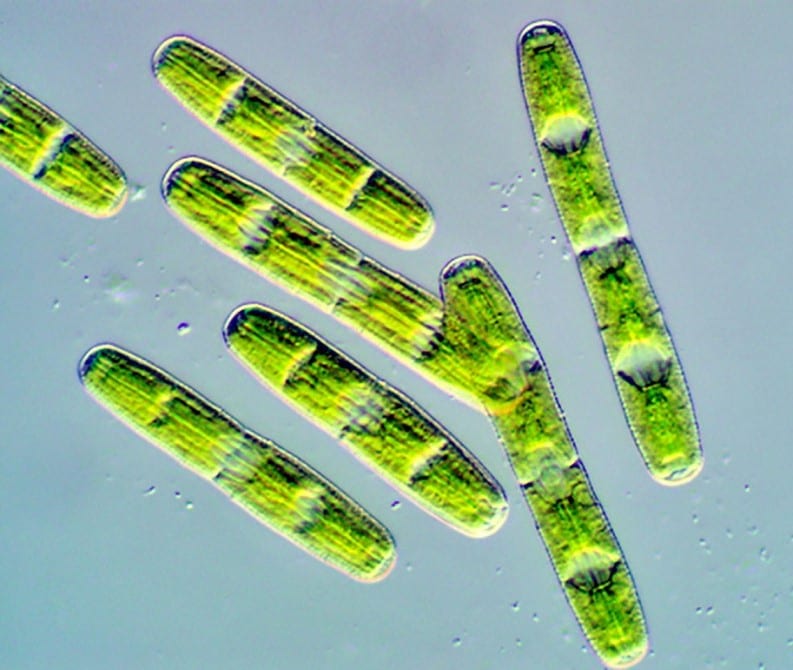
Algal genome provides insights into first land plants
In order to shift from water to land – a transition that still puzzles scientists – plants had to protect themselves from drying out and from ultraviolet (UV) radiation, and they had to develop structures to support themselves without the buoyancy provided by water....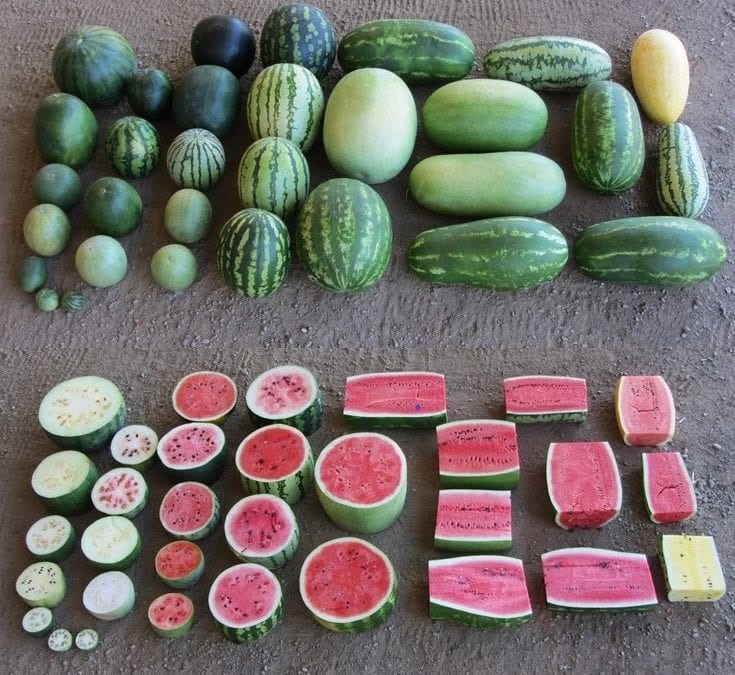
Harvesting Genes to Improve Watermelons
When many people think of watermelon, they likely think of Citrullus lanatus, the cultivated watermelon with sweet, juicy red fruit enjoyed around the world as a dessert. Indeed, watermelon is one of the world’s most popular fruits, second only to tomato – which many...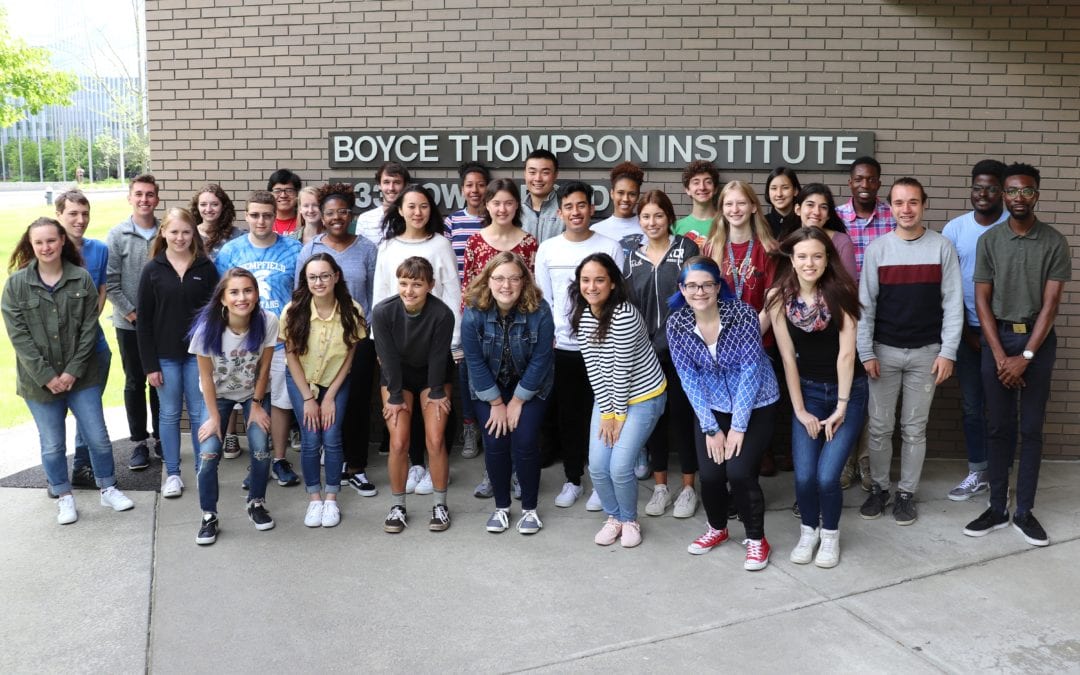
BTI Welcomes Summer Student Interns
On June 3, Boyce Thompson Institute welcomed 35 of the country’s brightest undergraduate students from universities around the country to experience the life of a researcher for 10 weeks. Eight more interns from area high schools will join the Institute for seven...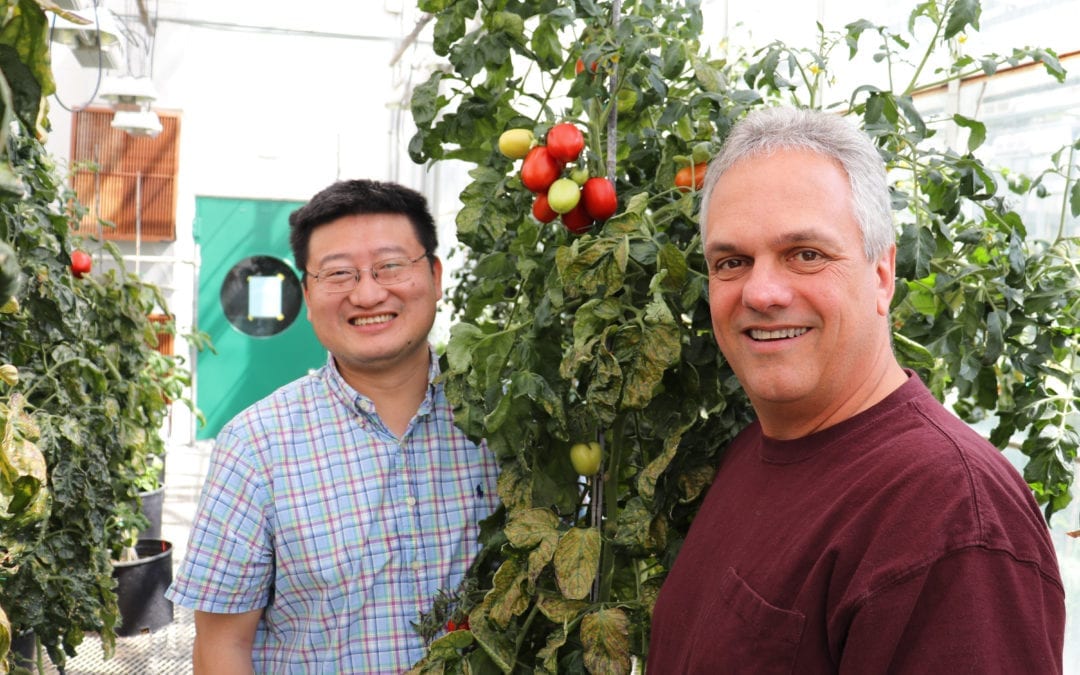
BTI Scientists Create New Genomic Resource for Improving Tomatoes
Tomato breeders have traditionally emphasized traits that improve production, like larger fruits and more fruits per plant. As a result, some traits that improved other important qualities, such as flavor and disease resistance, were lost. Researchers from Boyce...
BTI Promotes Faculty Member Fei
David Stern, president of the Boyce Thompson Institute (BTI), is delighted to announce that faculty member Zhangjun Fei has been promoted to Full Professor on February 27, 2019. Fei was evaluated on his achievements to date and the potential he possesses. Fei has made...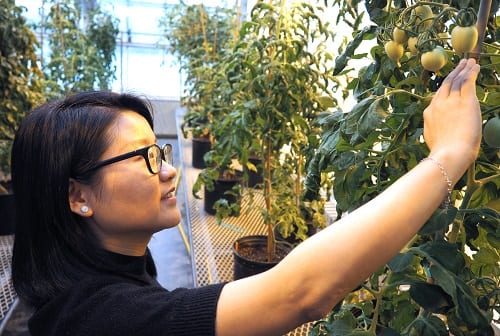
New CRISPR database to catalyze collaborations
Recently developed gene editing tools like CRISPR/Cas enable scientists to figure out the functions of myriad plant genes. While these studies could eventually lead to the creation of crops with improved traits like increased disease resistance or higher yield,...
Orange is the new white: New sweetpotato data is something to be thankful for
The genome sequences of I. trifida and I. triloba can be used as robust references to facilitate sweetpotato breeding. The genomic resources developed in this study set the stage for increased rates of genetic gains for key traits such as yield, resistance to disease, and high beta-carotene.
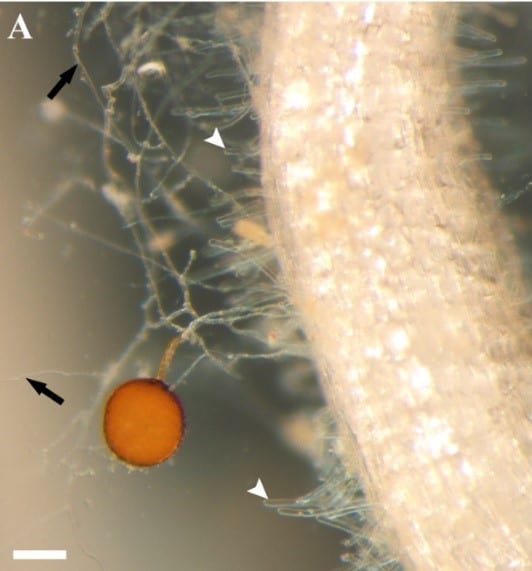
Back to our roots: Insights from genomes of a plant-associated fungus and its bacterial endosymbionts
In an article published this month in the journal New Phytologist, researchers at the Boyce Thompson Institute and the National Center for Genome Resources describe the genome sequences (DNA sequences), of the fungus Diversispora epigaea (formerly known as Glomus...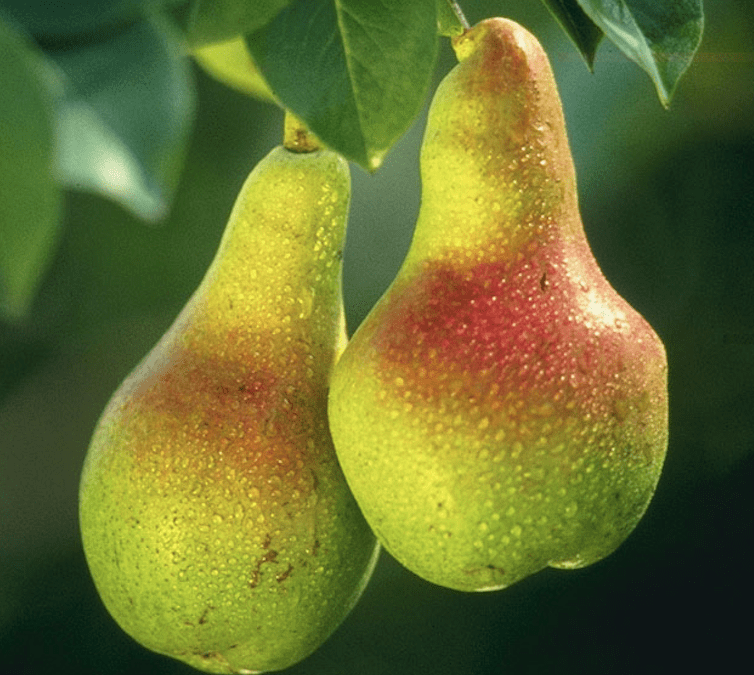
Pear genomes show evidence of independent domestication in Asia and Europe
Researchers from the Boyce Thompson Institute (BTI) and partnering institutions in China, the U.S., and New Zealand, report their findings on the domestication of the pear in Genome Biology.
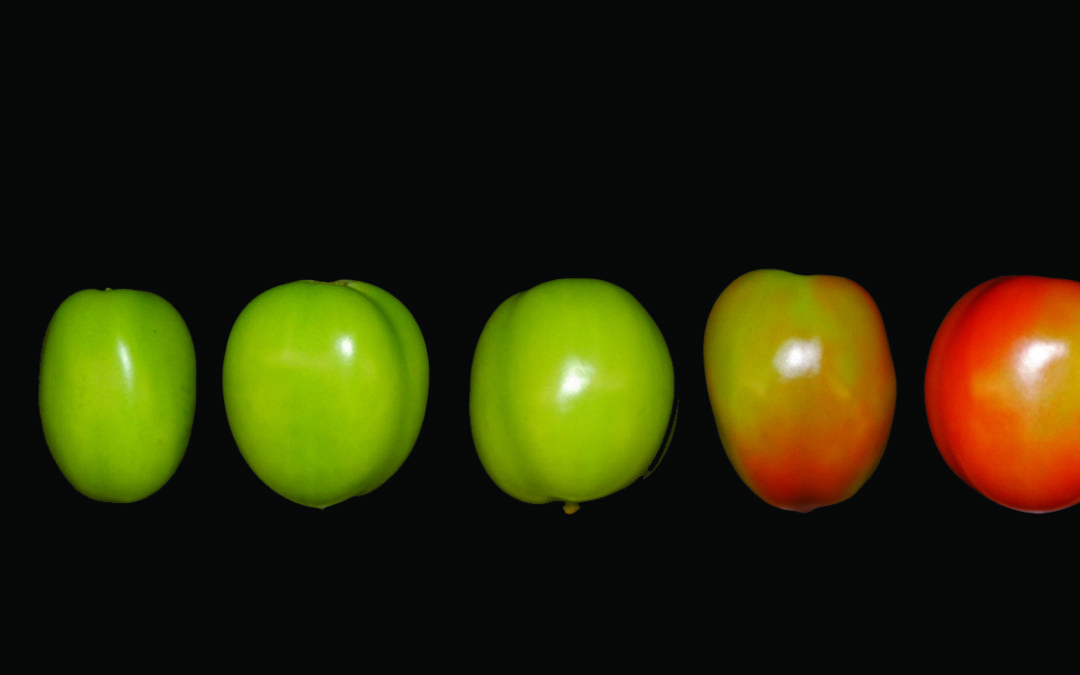
New ‘Tomato Expression Atlas’ dives deep into the fruit’s flesh
Researchers at BTI, Cornell and USDA published a spatiotemporal map of gene expression across all tissues and developmental stages of the tomato fruit – the genetic information underlying how a fruit changes from inside to out as it ripens. Their data is available in the new Tomato Expression Atlas (TEA).
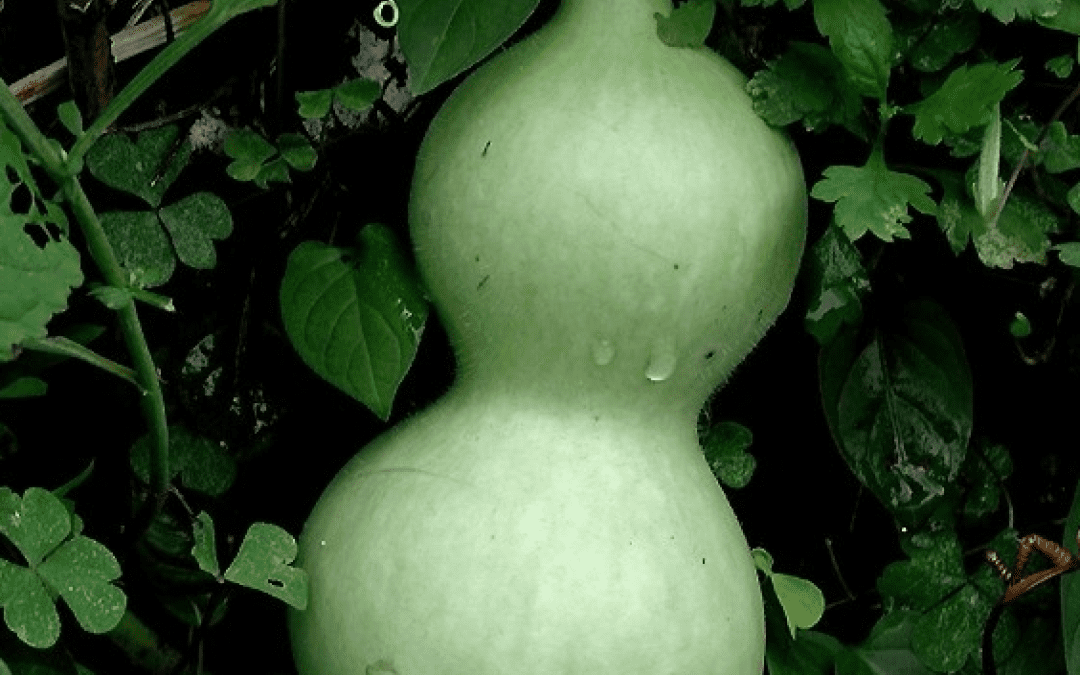
Bottle gourd genome provides insight on evolutionary history and genetic relationships of cucurbit crops
In their findings, researchers compared the sequenced bottle gourd genome to those of other cucurbit species, allowing them to reconstruct the ancient genomic history of the Cucurbitaceae family.

Pumpkin genomes sequenced revealing uncommon evolutionary history
For some, pumpkins conjure carved Halloween decorations, but for many people around the world, these gourds provide nutrition. Scientists at Boyce Thompson Institute (BTI) and the National Engineering Research Center for Vegetables in Beijing have sequenced the genomes of two important pumpkin species, Cucurbita maxima and Cucurbita moschata.
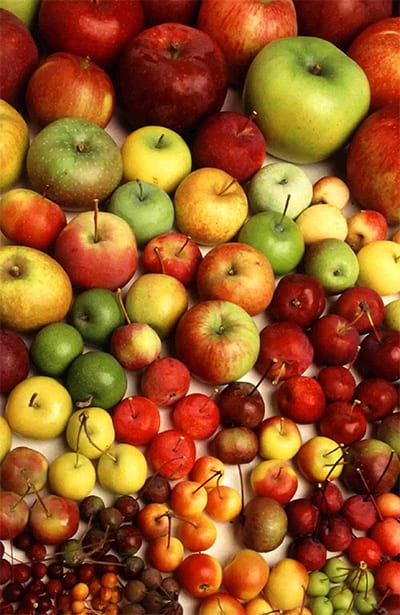
New genomic insights reveal a surprising two-way journey for apple on the Silk Road
New research out of Boyce Thompson Institute reveals surprising insights into the genetic exchange along the Silk Road that brought us the modern apple.
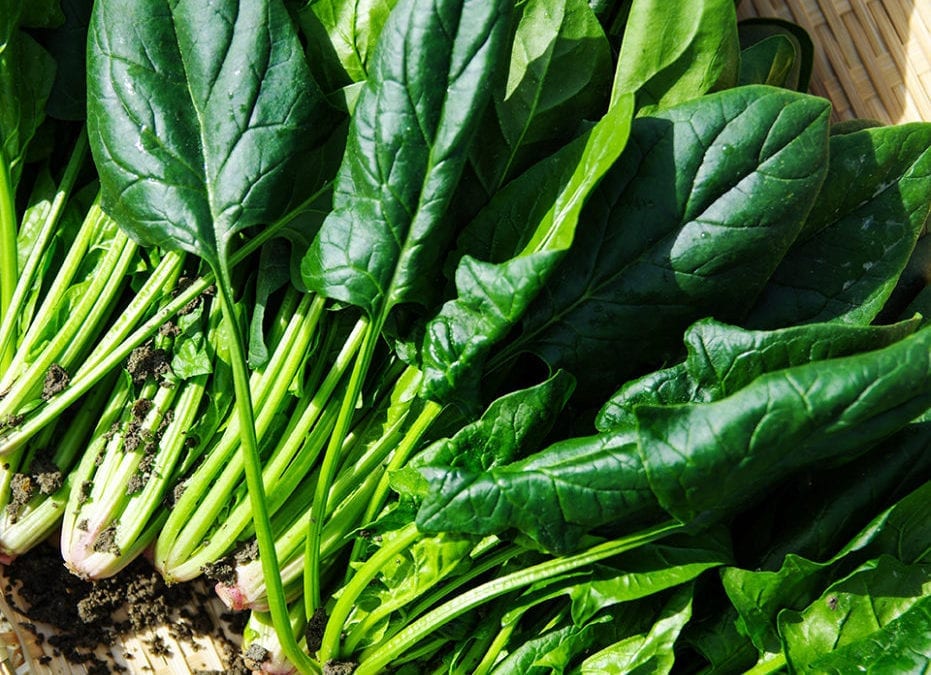
Newly-published spinach genome will make more than Popeye stronger
Today in Nature Communications, researchers from BTI and the Shanghai Normal University report a new draft genome of Spinacia oleracea, better known as spinach. Additionally, the authors have sequenced the transcriptomes (all the RNA) of 120 cultivated and wild spinach plants, which has allowed them to identify which genetic changes have occurred due to domestication.
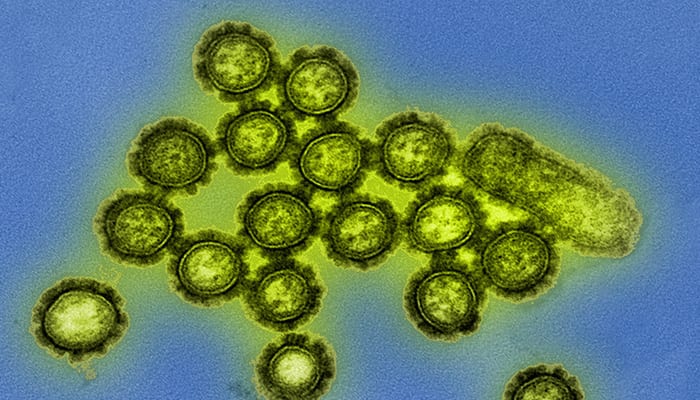
VirusDetect: a new pipeline for virus identification
The Fei lab releases VirusDetect, an automated bioinformatics pipeline that efficiently detects viruses and viroids from large-scale, small RNA datasets.
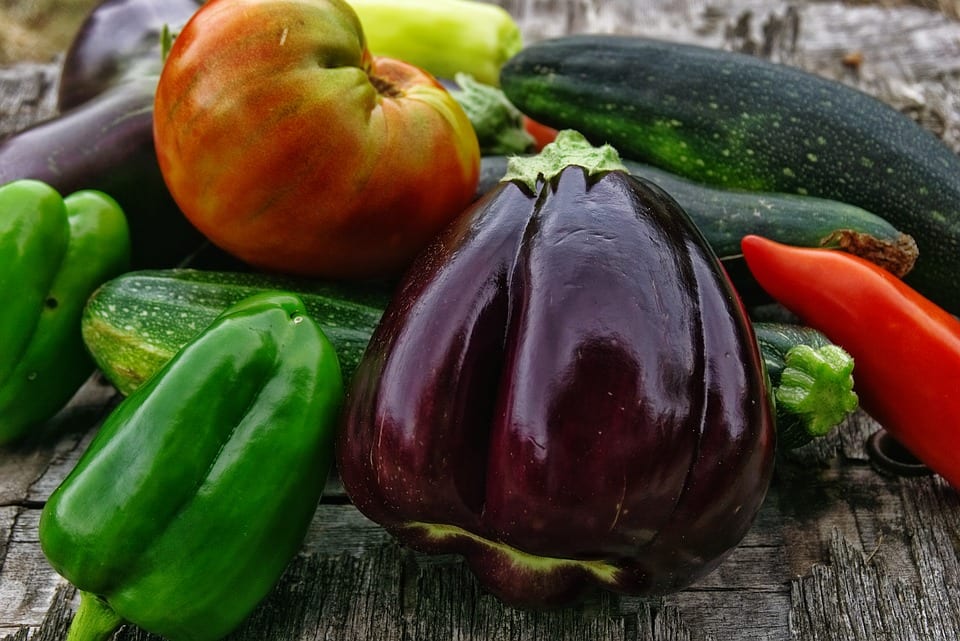
SolGenomics Meeting Has Newest Advances in Nightshades
Many BTI researchers will present their latest research at the 13th annual SolGenomics Conference, Sept. 12-16 in Davis, California.
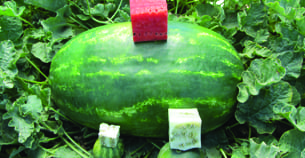
The Watermelon’s Past, Present, and Future
Watermelons have changed from a small, bitter fruit that grows wild in Africa to the most popular fruit in the world. What’s next for watermelons?
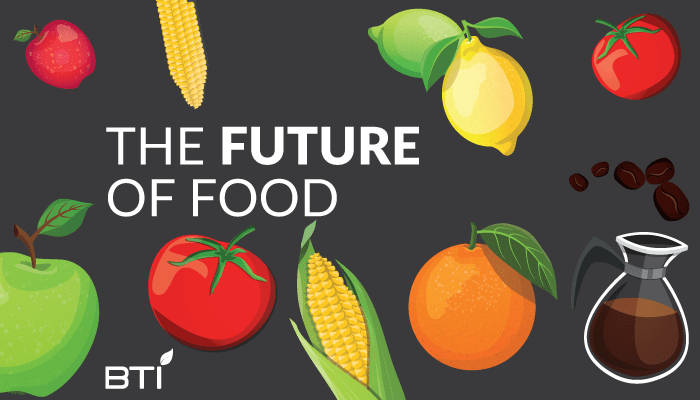
BTI Scientists Envision the “Future of Food”
What will your dinner plate look like in 2050? With discoveries from the Boyce Thompson Institute, future crops may have more nutrients and greater resistance to insects, drought and disease.

$6.5 Million Grant May Lead to Disease-Resistant Cucurbits
A consortium of 20 researchers is using advanced genomic techniques to accelerate the development of disease-resistant varieties of cucurbit crops. BTI Associate Professor Zhangjun Fei will lead the bioinformatics and genomics part of the initiative.

From Flower to Fruit: Study Reveals Details of Tomato Formation
BTI Researchers pinpointed which genes are important at different stages of tomato fruit development by monitoring how gene expression changed in the first four days after a flower becomes pollinated.

Student Symposium Caps Off 2015 Summer Intern Program
“My experience was really valuable…It confirmed the fact that I want to do science…science doesn’t work a lot of the time…it’s having the motivation and determination to tackle problems that you’re always going to come across.” Juan G

BTI Welcomes New Crop of Summer Interns
BTI welcomes 20 college-level interns for 10 weeks of research in Plant Genome Research Program, the Bioinformatics Program or the Bioenergy Education Program.

Extra DNA Creates Cucumber with All-Female Flowers
Researchers discover the genetics behind high-yield cucumbers that bear all-female flowers by screening 115 genome sequences to find large chromosomal variations.

Scientists Work Together to Develop Global Distribution Map of Tomato Virus
Boyce Thompson Institute Scientist Zhangjun Fei has teamed up with scientists from across the country to generate a comprehensive global virus distribution map for tomatoes.
